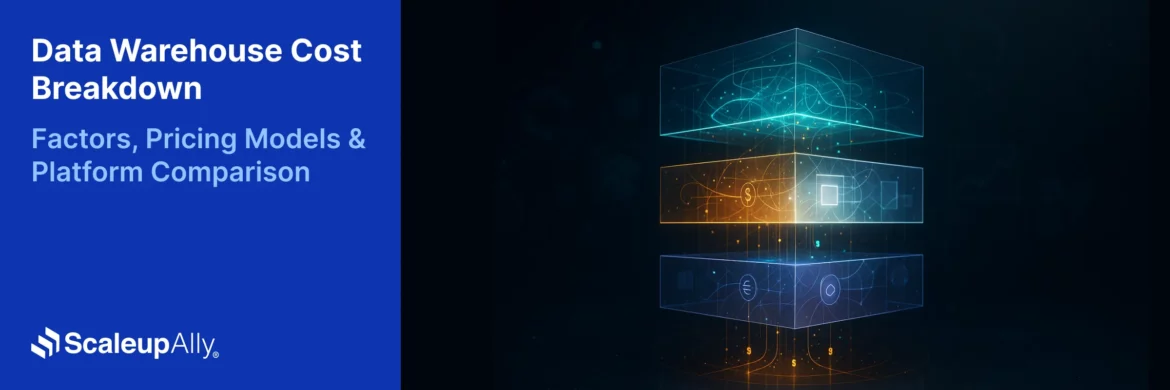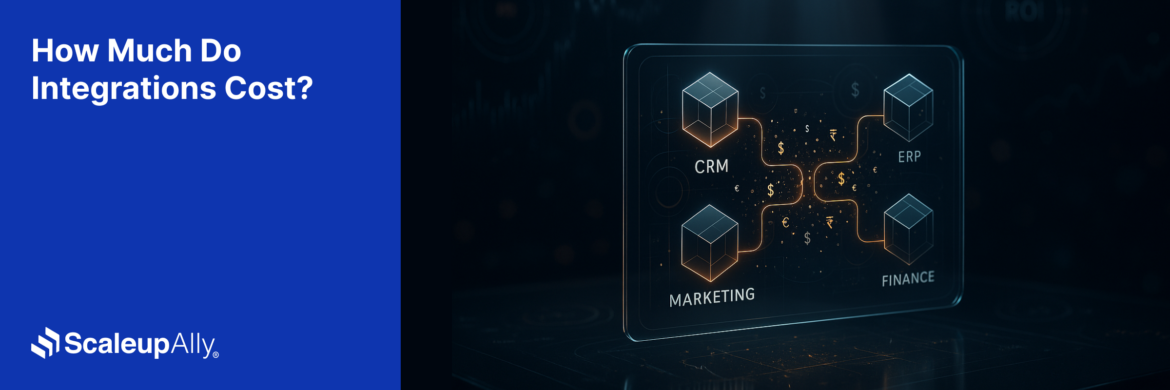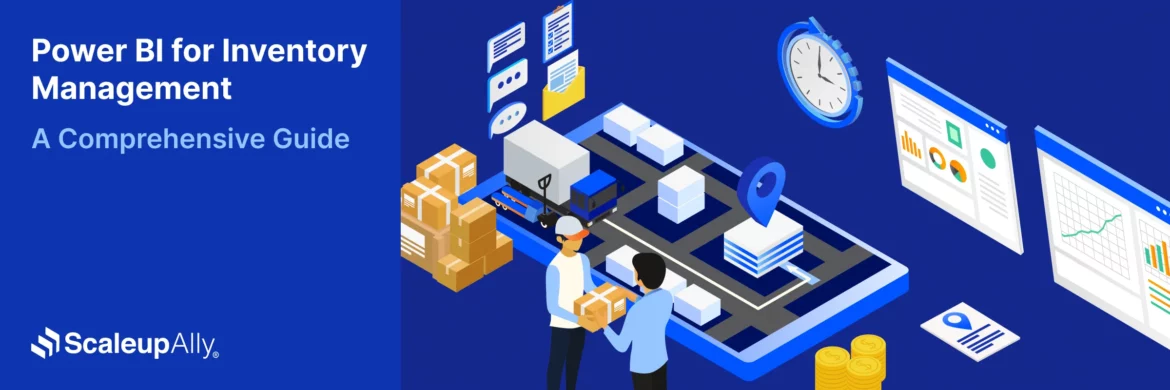Power BI Cost: Comprehensive Guide to Pricing Plans
Tarsem Singh | June 30, 2025 , 12 min read
Power BI Cost: Comprehensive Guide to Pricing Plans
Tarsem Singh | June 30, 2025 , 12 min read
Are you tired of jargon-filled explanations? This comprehensive guide offers a straightforward and easy-to-understand explanation of Power BI costs for the various pricing plans.
It will help you understand the features and costs associated with each plan so you can choose the best solution for your data analytics needs.
A Power BI license determines what features you can access, how much data you can store, and whether you can collaborate or share reports. Selecting the right license type is essential for scalability and cost-efficiency.
A Power BI license defines:
Microsoft offers four licensing options for its Power BI users to maximize flexibility for businesses of all sizes and varying data needs.
Understanding the cost of Power BI for each type makes it easier to align your decision with your business goals and data consumption.
Let’s see what each license type offers.
This is the entry-level of the Power BI licensing suite, and it costs $0. It enables users to connect data sources, analyse data, and create reports free of charge.
It is most suited for individual users or small local teams who need advanced data analytics and reporting without additional cost. It’s available for all Windows users to download and use.
While users can enjoy most of Power BI’s features, report sharing and collaboration are not allowed on this tier.
Features
Cost:
Power BI Pro is a paid monthly subscription that offers enhanced features beyond the free plan. Pro users can share and collaborate on reports, ensuring that each user accesses only relevant data.
For instance, headquarters can view all data, while regional teams see only their specific results.
Features
Cost:
How Much Will Power BI Cost?
Estimate your organization’s total cost based on license type, team size, and usage.

Power BI Premium Per User (PPU) is an attempt to meet the needs of small teams or companies in advanced features typically found in the full Premium license, such as larger data models and expanded Dataflow functionality, without requiring the higher cost of a full Premium license.
Meaning, reports created under a PPU license can only be shared with others with a PPU license. Users with just a Pro license won’t be able to access them, which limits the audience.
This licensing type is not popular for this reason. Eventually, the need to share reports with a broader audience often arises, potentially doubling the cost of Power BI licensing for the organization.
Features
Cost:
Companies can choose between two types of subscriptions: Standard and Premium. The Standard option requires a Power BI Pro license. With this subscription, users work within what is known as “shared capacity.”
A Power BI Pro license user can collaborate with other users of the same licensing type.
However, reports published in a shared capacity can only be shared with others with a Power BI Pro license.Non-Power BI Pro license users cannot view reports.
Features:
Cost:
Features:
Cost:
With the introduction of Microsoft Fabric, Power BI is now part of a unified analytics platform that combines data engineering, data science, real-time analytics, and business intelligence into a single SaaS offering. This integration has significant implications for Power BI Premium users—especially in terms of value and cost-efficiency.
Previously, organizations had to manage separate tools and infrastructure for BI, data lakes, and ML workflows. Now, Power BI Premium capacity includes Microsoft Fabric features by default, allowing teams to streamline analytics operations under one roof.
Key Benefits of Microsoft Fabric Bundling with Power BI:
What This Means for You
If you’re considering Power BI Premium, you’re no longer investing in just a reporting solution—you’re gaining access to a broader analytics platform. This makes Premium capacity even more attractive for enterprises looking to scale beyond dashboards into real-time analytics, machine learning, and unified data operations.
Even though the purpose of the different Power BI licensing options provided by Microsoft is for versatility, the downside is that they can be confusing when buying.
The following table provides a side-by-side comparison of the Power BI cost to clarify this confusion and help you make a better choice.
| Feature | Free | Pro ($14/user) | Premium PPU ($24/user) | Premium Capacity ($4995/month) |
|---|---|---|---|---|
| Sharing & Collaboration | ❌ | ✅ Pro users only | ✅ PPU users only | ✅ Unlimited |
| Max Dataset Size | 1 GB | 1 GB | 100 GB | 400 GB |
| Refresh Frequency | 8/day | 8/day | 48/day | 48/day |
| Paginated Reports | ❌ | ❌ | ✅ | ✅ |
| AI/ML Features | Limited | Basic AI | Full AutoML & Cognitive | Full AutoML & Cognitive |
| Storage Limit | 1 GB | 10 GB/user | 100 TB total | 100 TB + Dedicated Nodes |
Also read: Power BI Consultant Hourly Rates
Your choice of Power BI license depends on your data complexity, operational scale, pricing considerations, and business needs. Here are our recommendations:
A Power BI Pro subscription is ideal for small teams with limited data. At just $14 per month, it offers data sharing, collaboration, and reporting features—perfect for creating and sharing insights without advanced capabilities.
Consider Power BI Premium Per User for medium-sized businesses needing advanced analytics and larger datasets. At $24 per month, it unlocks premium features like paginated reports and AI-driven insights, making it a great fit for teams seeking higher capacity without enterprise-level costs.
Power BI Premium (Capacity-Based) is best for large enterprises with extensive data needs and high-volume usage. This option allows unlimited sharing, supports massive datasets, and provides dedicated cloud resources, ensuring top-tier performance and full organizational control.
Also Read: Power BI Best Practices
The decision to have either Power BI Free, Pro, Premium, or both will depend on several factors, with the cost of Power BI being a key consideration for many organizations. For larger organisations with more users than developers, Power BI Premium is ideal.
As your self-service analytics needs grow, Premium offers the scalability and flexibility required, especially with the addition of Microsoft Fabric. Take the time to assess each tier available and determine the best fit for your business and its goals.
As an expert Power BI development company, ScaleupAlly is passionate about enabling organisations to develop, share, and utilise the full potential of Power BI.
We help organisations of all sizes build Power Platform solutions in weeks, enabling you to go from data to insights in as little time as possible.
To learn more about what the Microsoft Power Platform can do for you and how to plan your Power BI deployment, connect with us for a free consultation today.
Q: How much does Power BI cost?
Power BI offers various pricing plans, starting with Power BI Free, which is free. Power BI Pro costs US$14 per user per month, and Power BI Premium starts at US$24 per user for PPU.
Q: What is the difference between Power BI Pro and Power BI Premium?
Power BI Pro is a per-user license that allows report sharing and collaboration. Power BI Premium offers additional features like higher storage, AI tools, and dedicated capacity, with per-user and enterprise-level licensing options.
Q: Is Power BI free for individuals?
Yes, Power BI Free is available for individuals. It allows users to create reports and dashboards but has limited sharing capabilities. For advanced sharing and collaboration, Power BI Pro or Premium is required.
Q: How much does Power BI cost for small businesses?
For small businesses, Power BI Pro costs $14 per user per month and is typically sufficient for most needs. If additional scalability or advanced features are required, you can choose Power BI Premium Per User, starting at US$24 per user per month.
References:
Related Blogs

Data Warehouse Cost Breakdown: Factors, Pricing Models & Platform Comparison
Discover how much a data warehouse costs in 2025. Explore pricing models, key factors, and platform comparisons to plan your data budget effectively.
Tarsem Singh
Nov 6 ,
14 min read

How Much Do Integrations Cost? [Pricing Breakdown & Key Insights]
Learn how much integrations cost, key factors influencing pricing, hidden expenses to avoid, and effective ways to reduce integration costs.
Tarsem Singh
Nov 6 ,
9 min read

Power BI for Inventory Management: A Comprehensive Guide
Explore the hidden power of Power BI for inventory management and how it provides businesses with powerful analytics and visualization capabilities.
Tarsem Singh
Oct 8 ,
19 min read

